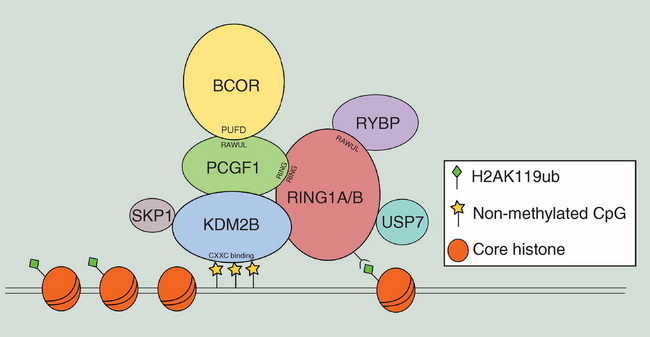Clear Cell Sarcoma of Kidney : Role of BCOR


Comments:
Role of BCOR in Cancer: BCOR acts as an epigenetic regulator and forms a key component of noncanonical polycomb repressive complex 1 (PRC1) shown in the figure. It regulates gene expression by epigenetic modification of histones through interaction with histone deacetylases. For a more detailed description of the role of BCOR in PRC1, please see the reference below. Normal BCOR function is critical for pluripotency of embryonic stem cells as well as normal ectodermal and mesodermal development. BCOR alterations lead to overexpression of mutant BCOR protein causing epigenetic dysregulation. This mechanism is thought to play a role in the pathogenesis of clear cell sarcoma of kidney. Other BCOR-mutated neoplasms of infancy include undifferentiated, Ewing-like round cell sarcoma of kidney, round or spindle cell sarcoma of soft tissue, and primitive mesenchymal myxoid tumor of infancy. BCOR alterations have been found to underlie many other neoplasms, including mesenchymal, epithelial, neural, and hematologic malignancies.Image source: Astolfi A et al. BCOR involvement in cancer. Epigenomics (2019) 11(7):835-855; used under Creative Commons - Attribution-NonCommercial-NoDerivatives 4.0 Unported License - CC BY-NC-ND 4.0



